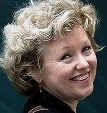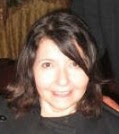Saturday, December 29, 2012
Friday, December 28, 2012
The True Stars
And the award
for best supporting role goes to… The Readers!
Writing may be
the easiest part of a writer’s job. Once your book is born the real work begins because now you
need to raise, nourish and educate this child and even if you succeed to marry
it into a good publishing family, your worries will never end. We seldom
hesitate to consider what or who is behind our sweet taste of success. Forever
the youngest in the family, I never believe anything I do is worthy of
appreciation. I’m always looking for ways to find the reason behind what others
may perceive as my success. Sometimes it’s hard to give credit where it’s due,
but when it comes to writing I can see it clearly. We are writers because of
all the readers out there. These are the people who make the dream become a
reality, who support us when we lose faith and who give us hope. Little do they
know how they help us to exhale the breath that for years we’ve been holding
in.
I can’t begin to
imagine what would become of us if there were no readers. True that the world would
still have as much to say and there would be countless stories to tell, but in
the absence of readers, how many of those stories would be written down? Would
there be any books? Any libraries?
This line of
thought fascinates me. We think we write because we have something that needs
to come out, but how many of us would continue our work if there was absolutely
no one to read our story? Would we suffice to make notes in our diaries? And if
stories were only communicated verbally, would we still “show not tell?” Would
there be any punctuation?
As I continue to
make my rounds through local book clubs and book discussion groups, it gives me
a chance to study readers with a whole new pair of eyes. Not only are most of
them smarter than the writer, the mere fact that they read my work is a huge
success. At my best, I write one book every few years, but they have thousands to
choose from. So what makes them choose mine?
My observations
brought me to the conclusion that most readers look for a piece of themselves
in what they read and the books they like are often the ones where they find
such a piece. The genre doesn’t seem to matter, nor does the length of the book,
and the publicity surrounding it has a much smaller role than we think. When a
reader curls up with a book, he or she is in search of a connection, something
that “hooks” them. And that “thing” is often a part of who they are. That’s why
you hear them say, “I was there, I became one with the main character, couldn’t
put it down!”
So how do we
know who these readers are and what they look for? To try and second-guess
readers is the biggest mistake a writer can make. Writing “for the market” may
work for a short time, but after a while the truth comes out because readers
know more than you think. Regardless of genre, a writer must remain true to the
word. A well-researched documentary can be as gripping as a real mystery and as
profound as an emotional drama. You can’t “tell” a reader what to think, but
rather, you portray an interesting character, create the scene, tell the story,
and let them do their own thinking. And if you are lucky, someone out there
will connect, which will ultimately bring you another reader, and then another.
Before you know it, the number of readers has grown geometrically and you have
met your success. Oh, but it’s as much the reader’s success as it is yours!
So the next time
you want to give yourself a good pat in the back for having written that great
American novel, find a reader and praise him or her for having made it possible
and never forget, you’ll maintain the success only if you sustain the honesty
that initially hooked them and that alone will “keep them hooked!”
Wednesday, December 19, 2012
Writing Amid Crosscurrents
by Divina Infusino
Recently, I confronted the dilemma that many authors and writers eventually face. I wrote text for a website.
Recently, I confronted the dilemma that many authors and writers eventually face. I wrote text for a website.
Writing for
your website is a quandary, if, that is, you want to put the site to its full
use. It is not required, of course. You
can just conceive of the website as a digital brochure, describing what you do,
your work, who you are, as well as providing contact information and links to
outlets where people can buy your books.
However, taking
full advantage of your website means getting your site to show up in Google
searches outside of your name and book title. So when someone types in “historical
fiction, California” and you’ve written a novel set during the gold rush of
1849, people unfamiliar with you or your work can discover you.
There’s only
one problem: To appear in the Google search results related to specific keywords
will probably require you to write a search-optimized website. The prose for
these types of sites are not governed by the same dictates demanded by books,
articles, essays, or any other written form that require traditional
writing expertise. Search engine optimized writing is ad copy.
Just the way
television and radio advertising reaches for earworm-like words or turns of
phrases, website copy is manipulated. It should reference the keywords that
most suit you and your work. In fact, it should reference those keywords a lot.
That’s the rub, if you are an author.
Most writers
fight redundancy in their word choices. (Unless, of course, they are using
repetition for effect).Website
writing is just the opposite.
A tool like Wordtracker or Google Trends will tell you the most popular keywords and phrases related to your topic. It is now your job, as website writer, to pepper those keywords throughout the website and do so as often as possible. The more you repeat, the more Google algorithms will associate your site with those keywords and therefore rank it higher in the search results.
A tool like Wordtracker or Google Trends will tell you the most popular keywords and phrases related to your topic. It is now your job, as website writer, to pepper those keywords throughout the website and do so as often as possible. The more you repeat, the more Google algorithms will associate your site with those keywords and therefore rank it higher in the search results.
So how do
you promote yourself as a writer and author when you are forced to violate one
of the basics tenets of good writing? Very carefully.
Think of
your website text not as writing but as a game of strategy. You can "play" the same keywords again and again
without drawing attention to the repetition by parceling them out.
For instance, place your identified keywords in your global navigation or in a tagline under your name. Or refer to them when flagging your next speaking engagement or workshop, and in your bio. Collect your most important keywords in the site description that accompanies your site submission to Google.
For instance, place your identified keywords in your global navigation or in a tagline under your name. Or refer to them when flagging your next speaking engagement or workshop, and in your bio. Collect your most important keywords in the site description that accompanies your site submission to Google.
There are
many tricks in the search engine optimization trade. Try to use the ones that
your website designer/developer can finagle into the code. If you have the
budget, you can hire someone who specializes in search optimization for advice.
Or you can take a short workshop.
You can have
an optimized site without jeopardizing your reputation as a writer. It just takes
a different mindset.
Friday, December 7, 2012
Mom’s Limited World of Words: Priceless!
By Georgeanne Irvine
 |
| Mom and me: Easter 2012 |
Mom has her good days and her bad days. When I mentioned that by phone to my brother,
with Mom sitting nearby, she piped up, “Well, I think everyone is like
that.” That same day she also told me, “I’ll
stay up ‘til it’s dark.” What a gem of a
day!
She often mixes up words:
hot means cold, all animals are dogs but roses are chickens. If you ask Mom her age, it could be anywhere
from 183 to 23 years old. Once when I
explained she was 94 years old, she said “How can anyone stay that long?” I was elated to hear that response.
This week during one of my visits, she had several moments
of clarity, which made the evening incredibly special. I was feeding her and had paused, with food
in spoon, to greet one of her caretakers.
When I turned my attention back to Mom, she looked at the spoonful of food
and said, “Will you hand it to me now?”
After dinner we watched a video about the San Diego Zoo’s giant panda
cub. I pointed at the panda and asked,
“What is that?” Her response: “It’s a story,” and indeed it was a story—a
video story. As I kissed her goodbye at
7:45 p.m. and told her it was time to go “night night,” she looked at the clock
and proclaimed, “Oh, it isn’t even 8 o’clock!”
We usually end our visits with a duet of “Happy Birthday to
You.” As long as I sing it with her, Mom remembers the words and the tune! We always sing it three times, although on
her 94th birthday, it was an even dozen.
My most memorable day by far, though, happened in early fall. Mom looked at me and without prompting said, “You’re Georgeanne.” I was taken aback as well as touched deep within my heart. She hadn’t called me by name in years! Seconds later, her recollection of my name was gone but that fleeting moment of lucidity was priceless. “You’re Georgeanne”—such simple words from anyone else but words from Mom that l will treasure forever.
San Diego native Georgeanne Irvine has devoted more than three decades of her career to raising awareness about animals and wildlife conservation. By day, she is associate director of development communications for the San Diego Zoo, where she has worked for 34 years. George is also the author of more than 20 children’s books, plus numerous magazine, newspaper, and Web articles. George’s most recent work is the coffee table book, The Katrina Dolphins: One-Way Ticket to Paradise, which is a true story about 8 dolphins from an oceanarium that were washed out to sea during Hurricane Katrina in 2005 and dramatically rescued a few weeks later.
Saturday, December 1, 2012
Grants, Residencies and New Possibilities
by Kathi Diamant
There are myriad ways to create a meaningful life as a
writer, on a writer’s meager income, besides writing. Some of us teach. Others edit.
And still others, like me, apply for grants, fellowships and residencies, which
provide for rich and rewarding adventures, opportunities that we never dreamed of,
creating new stories to tell.
Writing grants isn’t easy, but neither is it quantum
physics. Basically, it’s a matter of following the always-provided guidelines. A few
hours research at the San Diego Foundation can yield intriguing prospects or
spark new possibilities for your own life. Did you know that there are grants
for international travel, for research in libraries and national institutions,
funds to attend conferences that will help you meet and engage with other professionals
and potential colleagues? There are. Hundreds, if not thousands, of foundations
and institutions have resources to help you write and research your story.
If you live in San
Diego , visit the San Diego Foundation at Liberty
Station, where you can find the Nonprofit Resource Center (NRC), offering research
services, publications, and workshops to the public. Free and open Monday through Friday, the NRC
offers information on grants to individuals (like you and me) with an online
database of over 6,000 funding sources in education, research, arts and
culture, and special needs. Staff is on
hand to help, and you don’t need an appointment. More information is available at www.sandiegofoundation.org
Last year, through the NRC database, I learned about a grant
opportunity I had never considered before, but thought, why not? I applied and a few months later, received an
Eastern European research residency as a Scholar at the Woodrow
Wilson International
Center in Washington , DC Wilson Center A Street
and all expenses, plus a little on the side. I was blissfully happy.
Writers have long enjoyed the creative comradery of writers colonies
and retreats. My favorite is Hedgebrook. Since 1988, the six Amish-style
individual Cottages at Hedgebrook have provided a Heaven on Earth for thousands
of women writers across the country, including, incidentally, a handful of San
Diegans. Located on Whidbey Island in Washington ’s
Puget Sound , Hedgebrook is a retreat for woman
writers, published or not, offering solitude in a extraordinarily creative
environment. And it’s all free. In exchange for room and board, Hedgebrook only
asks that each woman be the best writer she can be while she is there.
I first applied to Hedgebrook in 1992, and was accepted for a five-week-long residency the following year. Surrounded by nature, by fir and cedar, ponds and meadows, eagles and deer, I was in heaven. There was no telephone, no television, nothing to interrupt the chain reaction of my thoughts. My handcrafted little cottage opened onto a fern-filled meadow with view of
Hedgebrook’s cottages offer everything a writer could need
or want: an expansive desk, lots of light, a wood-burning stove, kitchenette,
bathroom, window seat. Upstairs, in the loft lighted by the stained-glass
windows, is a comfy bed with feather pillows and down comforter. A local chef
cooks all the meals for the six writers in residence, and dinners are served
nightly in the farmhouse by homemade-candlelight.
I’ve been back to Hedgebrook three times since, once for
another residency, and twice for week-long master classes. Now, my fingers are crossed
once again. A couple of months ago I applied for another residency to work on
my memoir. While I certainly can write,
sitting here, as I usually do, at my computer, Hedgebrook offers me a break
from usual, to a land of dreams and chance. I should hear in the next week or
so. In the meanwhile, you might want to check out Hedgebrook for yourself: www.hedgebrook.org.
Why not?
****
Kathi Diamant is the
award-winning author of Kafka’s Last Love and an adjunct professor at SDSU, where she directs the Kafka Project,
the official search for Franz Kafka’s lost literary treasure. Kathi has
lectured internationally, and taught classes on writing, acting and on literary
genius Franz Kafka. Earlier this year, she received a month-long residency at
the Woodrow Wilson
International Center
for Scholars in Washington ,
DC
Subscribe to:
Posts (Atom)












